20 MUST-KNOW Tips for Extending the Life of Your Dishwasher
Is there a more marvelous time- and labor-saving device (especially during the holidays)? Probably not. Thus you want to keep this blessed kitchen appliance in great shape so it can reward you with optimal performance over its lifetime. With this said, here are some simple tips on how to extend the life of your dishwasher.
First, CLEANING:
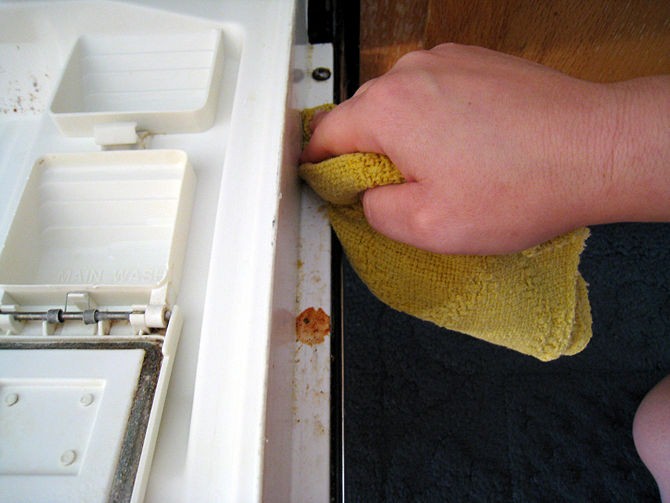
1. Wipe the dishwasher gasket on a regular basis (every few days is best). “A stitch in time saves nine” is the idea here. Keeping up on gasket cleaning means never needing to spend a lot of time or energy degunking it.
2. Clean the trap, pulling it out if possible, and clear the nozzles on the spinner arms as needed. These can get clogged with hard-water or food particle buildup. (Same precept as regularly wiping the gasket.)
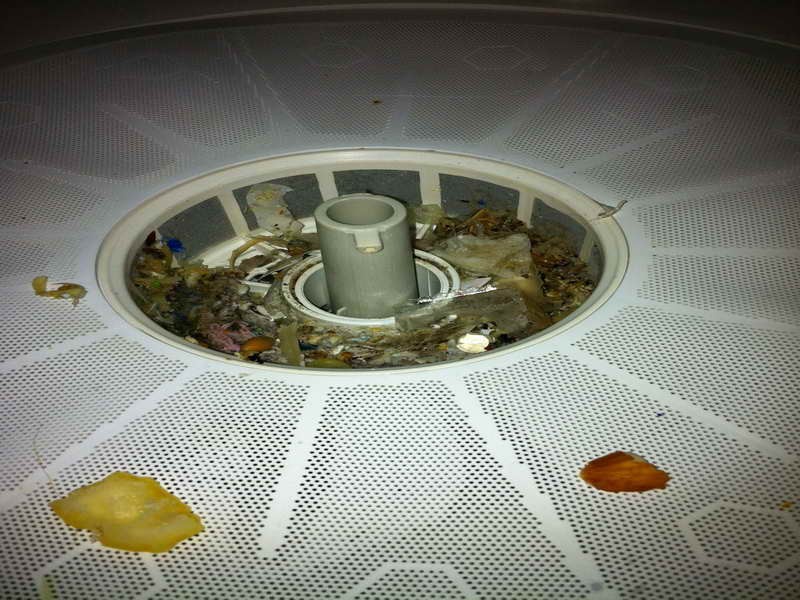
3. Remove the filters and clean them on a regular basis by rinsing with warm water—use a soft brush if necessary (unless you have a machine with a self-cleaning filter).
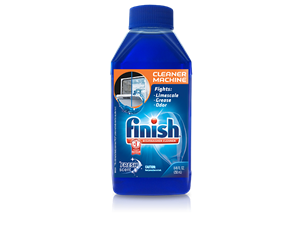
4. If you deal with hard water in your area, use an anti-limescale product once a month.
Now let’s look at smart steps to take BEFORE EACH USE:
5. Make sure anything plastic that you want to include in a cycle is 100% dishwasher safe.
6. Today’s dishwasher manufacturers claim there is no need pre-rinse. I dunno about this. My motto is “If it only takes a few minutes, why not?” I like the idea that this step means less filter cleaning. It’s your call, but do be sure to scrape off large food particles.
7. Prior to starting your cycle, take a minute to run the garbage disposal to clear out your plumbing pipes (which facilitates proper drainage).
8. And here’s a HOT tip: Run the hot water in your sink so it will be at full temperature when you start the dishwasher. (Use the initial run for watering houseplants). If you have a dishwasher with a built-in water heater, skip this step.
9 . Use a measured amount of detergent; eyeballing makes it easy to overestimate.
Now, some NO-NOs:
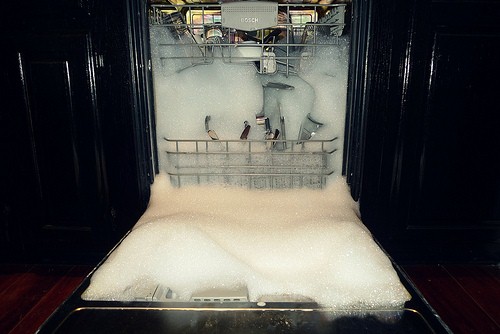
10. Never substitute liquid detergents meant for hand washing dishes. You’ll get an overload of suds and bubbles all over your kitchen floor.
11. Avoid the temptation to use more dishwasher detergent than the manufacturer directs.
12. If you’ll be away for an extended period, don’t leave the machine connected to your electricity and water line. Disconnect to be safe rather than sorry.
13. Never allow water lines to be exposed to freezing conditions. Wrap them well.
14. Don’t overuse vinegar (or combine it, in any quantity) with bleach. Vinegar will eat away at the door seal and bleach can produce dangerous fumes.
16. Don’t set the appliance at the wrong temperature:
- Use high temperatures for heavily soiled dishes.
- Use to energy-saving low temperatures (130°F) for less soiled loads. (A low temperature is also better for glassware.)
- Use 150°F or more for pots and pans.
17. Don’t use heat to dry your dishes. Let them air-dry instead.
18. Don’t select the “Rinse-Hold” for a small amount of dishes. You’ll save 2-3 gallons of water by placing them in a rinse basin.
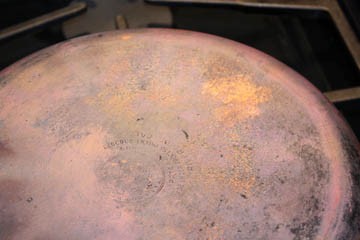
19. Don’t use the dishwasher for fine china and special utensils. Gold trim will erode, crystal can crack, handles on high quality knives can work loose, and copper will discolor.
And to close, here’s my own tip for WHEN THE DISHWASHER IS BROKEN:
20. Until you can get it fixed, use the rack to drain your hand-washed dishes!
- www.wikihow.com
- www.fortikur.com
- www.finishdishwashing.com
- www.blog.warnersstellian.com
- www.reverewareparts.com
 Alice Osborne
Alice Osborne
Weekly Newsletter Contributor since 2006
Email the author! alice@dvo.com
